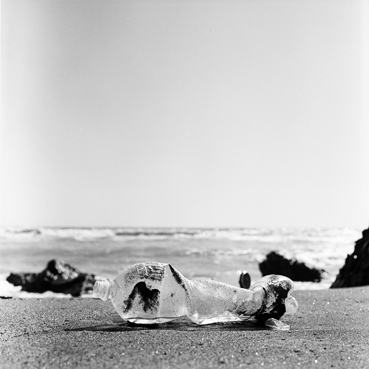-

- Ostia, Rome
In 1975 Pier Paolo Pasolini already wrote about and warned against the consequences of industrialization in Italy with his essay The disappearance of the glowworms.
About thirty years later, the journalist Roberto Saviano focuses on the illegal waste removal in a separate chapter in his bestseller Gomorrah.
Toxic industrial waste from Italy and other parts of Europe (Switzerland, France, Germany) was systematically burrowed or burned on illegal landfill sites in Southern Italy, run by a collaboration of the Mafia with industry and politics.
Some parts of the toxic waste were resold again as a building material or fertilizer.
The Italian environmental organization Legambiente speaks of 10 million tons of illegal highly toxic industrial waste in the metropolitian area of Naples since 1990 and which has contaminated the soil, the groundwater and the air. At the same time medical research shows a significant increase of cancer and the occurrence of birth defects in the provinces of Naples and Caserta.
Besides disposing the waste illegaly on land, Italy became a logistical centre for the toxic waste disposal at sea since the '90s, too. In this context Legambiente reports at least fourty missing ships in the Mediterranean Sea. Hundreds of barrels of toxic waste and radioactive waste were also shipped via Italy to Somalia, Malawi, Zaire, Sudan, Eritrea, Algeria and Mozambique. When the tsunami reached the Somali coast at the end of 2004, a number of toxic waste barrels were washed onto the beach.
But what are the reasons that parts of a landscape, formerly used for agriculture, were transformed in a highly toxic waste deposit?
According to the journalist Roberto Saviano increased international competition is the main reason, because it caused a fall in prices of agricultural products and local farmers couldn't compete anymore against foreign bidders. To stay profitable at all the farmers sold their land to the Mafia and this was the starting point regarding the illegal waste disposal.
Professor Massimo Scalia of the La Sapienza University in Rome, who led two committees inquiring into the illegal waste disposal, sees the reasons in the Italian history.
On the one hand - according to Professor Scalia - the Counter-Reformation and the Council of Trent has cemented the power of the Catholic Church in Italy. Therefore ethics were defined only through the church and individual responsibility was lost.
On the other hand, there never was a revolution in Italy as for example in France or England and for this reason civil society has not yet been developed. These two historical incident lead to a situation in Italy where people don't feel responsible for the consequences of their actions.
The whole waste story is for Scalia a historical evidence for exactly this behavior and he adds:
»You will hardly find anyone in Italy, who says I am responsible.«
<< >>
